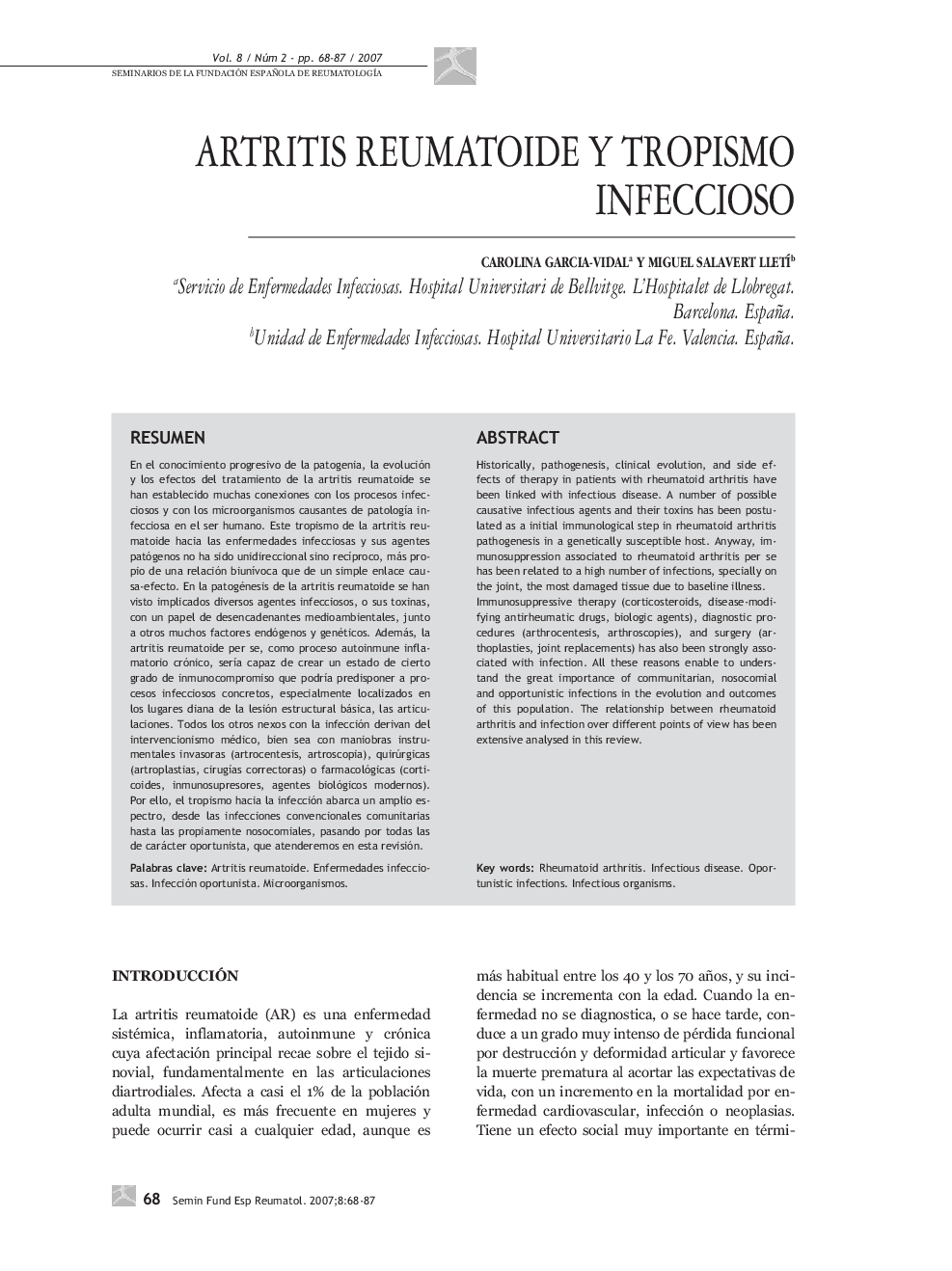| Article ID | Journal | Published Year | Pages | File Type |
|---|---|---|---|---|
| 3391231 | Seminarios de la Fundación Española de Reumatología | 2007 | 20 Pages |
Abstract
Historically, pathogenesis, clinical evolution, and side effects of therapy in patients with rheumatoid arthritis have been linked with infectious disease. A number of possible causative infectious agents and their toxins has been postulated as a initial immunological step in rheumatoid arthritis pathogenesis in a genetically susceptible host. Anyway, immunosuppression associated to rheumatoid arthritis per se has been related to a high number of infections, specially on the joint, the most damaged tissue due to baseline illness. Immunosuppressive therapy (corticosteroids, disease-modifying antirheumatic drugs, biologic agents), diagnostic procedures (arthrocentesis, arthroscopies), and surgery (arthoplasties, joint replacements) has also been strongly associated with infection. All these reasons enable to understand the great importance of communitarian, nosocomial and opportunistic infections in the evolution and outcomes of this population. The relationship between rheumatoid arthritis and infection over different points of view has been extensive analysed in this review.
Keywords
Related Topics
Health Sciences
Medicine and Dentistry
Immunology, Allergology and Rheumatology
Authors
Carolina Garcia-Vidal, Miguel Salavert LletÃ,
